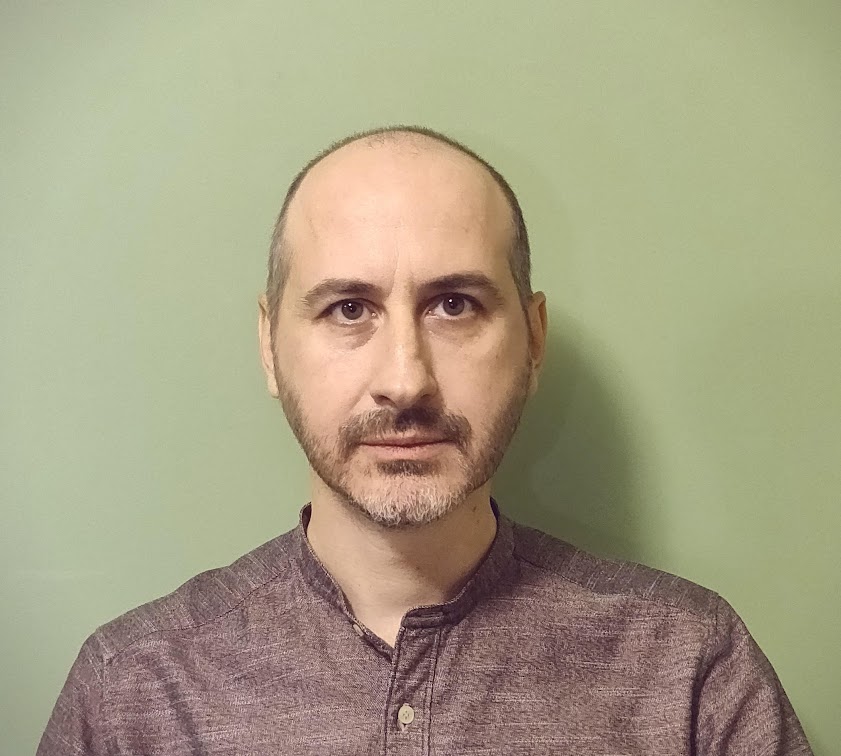Futures4Europe interviewed Eye of Europe’s Coordinator, Radu Gheorghiu, foresight expert at UEFISCDI, the Romanian Research & Innovation funding agency. What does the future look like for R&I in Europe? How does foresight play a role? Radu provides a glimpse into these questions and Eye of Europe’s central role in them.

Can you encapsulate the essence of the Eye of Europe project in a metaphor?
I would say it’s a dream machine, a space where we collectively weave our dreams and our aspirations regarding potential futures. More pragmatically, it is an attempt to build a social infrastructure for piecing together existing conversations in foresight and amplifying them to create synergies. People make up the heart of this project, not just foresight practitioners but anyone who is intrigued by the future of their domains of expertise, as well as non-expert audiences. These individuals, representing a wide spectrum of interests, can dive into foresight projects, outputs, interesting scenarios, visions, and disruptive trends, to name a few. Our platform, Futures4Europe, serves as a hub for this vibrant community, keeping the conversation about our collective future alive and enabling participants to learn from one process to another. This interaction doesn’t just stay online. It extends into the physical world through foresight exercises, futures literacy workshops, mutual learning exercises, and conferences. It’s all about creating a continuous loop of dialogue, learning and inspiration.
If you could solve one major challenge for Research and Innovation (R&I) in Europe with a snap of your fingers, what would it be?
I would re-imagine R&I not just as a field in its own right, but as a beacon of transformation across all sectors. Despite considerable efforts, R&I still struggles to truly integrate with other areas. I would like to see R&I at the heart of policy-making across diverse fields like energy, or food, or any other policy domain, as a foundational element. I think that research offers so much more than just generic evidence; it provides a deeper understanding of our society, its context, and a reflection about where we are and what we want. In essence, I would reposition R&I, and especially foresight-empowered R&I, to be at the forefront of policy development, facilitating new understandings and paving the way towards positive change.
Beyond metrics and milestones, how do you hope that this project will change the conversation around R&I in Europe?
One of the aims is to support institutionalisation of foresight in R&I. This means encouraging R&I funding agencies to incorporate foresight procedures and capabilities in support of their strategic planning. Given that research and its funding navigate future possibilities and uncertainties, adopting a structured foresight approach is crucial. Institutionalising foresight in R&I funding agencies should become the norm in the following decade.
Beyond institutional practices, our ambition extends to cultivating a more inclusive dialogue about the future within the R&I community. While domain experts often contribute to these future focussed discussions, their engagement remains sporadic. EYE of Europe seeks to change this, maintaining an open, continuous conversation where everyone’s insights are valued and leveraged. We want to create that spark and keep the fire going.
If you had to look into your crystal ball, what will R&I look like in Europe in 10 years?
I see AI emerging as the cornerstone of transformation in R&I. The speed at which research can progress, thanks to AI, is both a gamechanger and a complex challenge. We already face scientific papers published without or with little human help, and this triggers ethical debates. I see this only as an early sign of the tsunami: AI can reshape the face of research by becoming not only a very powerful tool, but also a partner in innovation. The challenge and opportunity to harness AI responsibly and creatively in research is an open invitation to the entire European R&I community. The future of R&I in Europe, enriched and transformed by AI, promises to be both exciting and complicated, demanding our attention, imagination, and ethical consideration.


